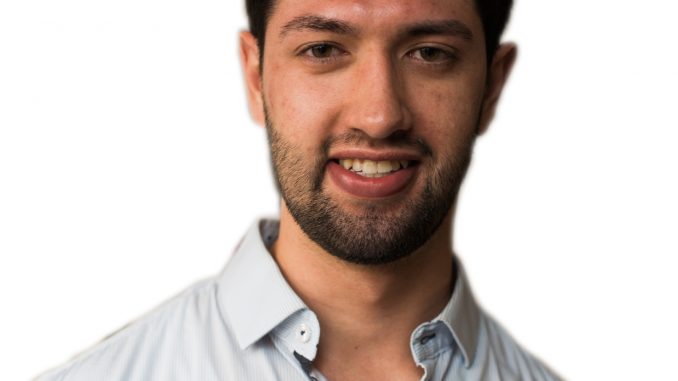
 Before I came to Temple, I didn’t know much about social issues like gentrification and race relations, but through productive classroom discussions, I’ve developed a greater understanding and concern for problems like this that we face as a society.
Before I came to Temple, I didn’t know much about social issues like gentrification and race relations, but through productive classroom discussions, I’ve developed a greater understanding and concern for problems like this that we face as a society.
The classroom should be a place where people are able to voice their opinions, while being conscious and respectful of other people’s beliefs and circumstances. Although certain subjects like politics, religion and race may be hard to talk about, they need to be discussed to facilitate any kind of new learning.
“There are certain kinds of classes that, by virtue of their subject matter, necessarily require exposure of students to controversial issues and questions on which there will be within the classroom, particularly in a diverse community, substantial amounts of disagreement,” said Mark Rahdert, a constitutional law professor.
The whole point of college is to broaden one’s mind through new and potentially unfamiliar experiences and to interact with people who may have differing viewpoints. This can hopefully help students become more well-rounded human beings.
As a journalism major, part of my job is to talk to people. Through these interactions, I’ve gained new knowledge and understanding of viewpoints different than my own.
This type of communication — questioning and thoughtfully listening to each other — needs to be facilitated in classroom settings, too. But for each of us to learn from each other, students need to push themselves to be vocal about important issues in the classroom.
Without sharing our views, we can’t possibly understand someone else’s experiences. Still, some students feel uncomfortable discussing certain topics.
“Since I am white, I feel a little uncomfortable discussing things like systematic oppression,” said Lindsey Clutter, a freshman political science and theater major. “But people need to learn about things that make them uncomfortable or else terrible things like Trump’s presidency happen.”
Joseph Wolfram, a sophomore biology major, said he feels uncomfortable sharing his opinions on subjects like abortion and transgender issues.
“Political correctness limits conversations,” Wolfram said. “I don’t want to offend anyone with my opinions, so I just keep them to myself.”

It’s important to talk about tough issues. This is the only way we can understand each other’s perspectives and learn new information that may change our minds.
Professors also play an important role in encouraging this type of discussion in the classroom.
Anna Peak, an Intellectual Heritage professor, said she requires participation in her classes, which forces students to share and be engaged.
“You have to be willing to really engage with your opinion, defend your opinion, learn more about the context and be willing to change your mind about things,” Peak said.
“It’s possible for an instructor to be so set on forbidding so many things, you know, ‘You can’t say this, you can’t say that,’” Peak added. “Not even in terms of word choices but even opinions that you can or can’t express. That’s obviously not going to express a real dialogue either.”
Professors have control over discussions and subject material in their classes, but if they’re teaching contentious topics, they ought to take extra steps to make everyone feel comfortable enough to contribute.
Rahdert said Temple’s academic freedom policy encourages open dialogue in classroom settings.
“If you look at the statement of principles, it supports free inquiry and free expression with certain qualifications,” Rahdert said. “And the qualifications have to do with civility, they have to do with respectful exchange.”
Fear of a negative reaction from professors and fellow students alike can act as an inhibitor to personal growth because then classes can turn into echo chambers, where a dominant viewpoint is often shared and nothing new is discussed.
“People are so fearful of saying anything that they say nothing,” Peak said. “I know from reading people’s quizzes, or their written responses, or journal entries, or whatever I might be assigning that semester, obviously people have strongly held views. But they don’t want to do it in front of their peers.”
Adam Krizner, a sophomore criminal justice major, said he feels compelled to soften his opinions in his law enforcement classes when discussing controversial subjects, like race relations or police brutality.
“If I were to voice my opinion, I would do it in a way that’s not going to be blunt and edgy so that people don’t get as fired up about it,” Krizner said. “When people get emotional about certain topics, it’s hard to have a civil debate with them.”
If students feel unable to express their own opinions in the classroom for fear of being shot down, that’s not healthy for classroom discussion and learning. Civil debate is key to working through sensitive issues, especially after college. If we can’t discuss societal problems within the classroom, how can we even begin to try to resolve them once we graduate?
One of Temple’s strengths is its diversity — students and faculty come from all different backgrounds. But diversity of thought matters too, especially for students to understand other’s viewpoints and circumstances.
In order for students to learn and grow, they must be able to discuss sensitive topics in the classroom, without fear of disagreeing with the professor or other students. Free academic discussion is essential to becoming a more well-rounded human being.
Zach Kocis can be reached at zach.kocis@temple.edu.


Be the first to comment